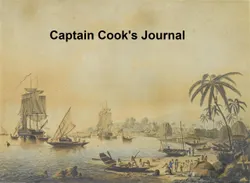For our entire history, humans have always searched for new ways to share information. This innate compulsion led to the origin of writing on the rock walls of caves and coffin lids or carving on tablets. But it was with the advent of papyrus paper when the ability to record and transmit information exploded, allowing for an exchanging of ideas from the banks of the Nile throughout the Mediterranean—and the civilized world—for the first time in human history.In The Pharaoh’s Treasure, John Gaudet looks at this pivotal transition to papyrus paper, which would become the most commonly used information medium in the world for more than 4,000 years. Far from fragile, papyrus paper is an especially durable writing surface; papyrus books and documents in ancient and medieval times had a usable life of hundreds of years, and this durability has allowed items like the famous Nag Hammadi codices from the third and fourth century to survive.

The Black Joke: One Ship's Battle Against the Slave Trade
A.E. Rooks
audiobook
Between Freedom and Equality
Barbara Boyle Torrey, Clara Myrick Green
audiobook
The Fire on the Ocean: Naval War of 1812
Theodore Roosevelt
book
Desperate Sons : Samuel Adams, Patrick Henry, John Hancock, and the Secret Bands of Radicals Who Led the Colonies to War
Les Standiford
audiobook
Massacre on the Merrimack
Jay Atkinson
audiobook
They Knew They Were Pilgrims
John G. Turner
audiobook
Privateers and Privateering
Edward Phillips Statham
book
Bold Venture
Steven K. Bailey
audiobook
Five for Freedom
Eugene L. Meyer
audiobook
The Scottish Clearances
T.M. Devine
audiobook
The Fever of 1721
Stephen Coss
audiobook
Captain Cook's Journal
James Cook
book


